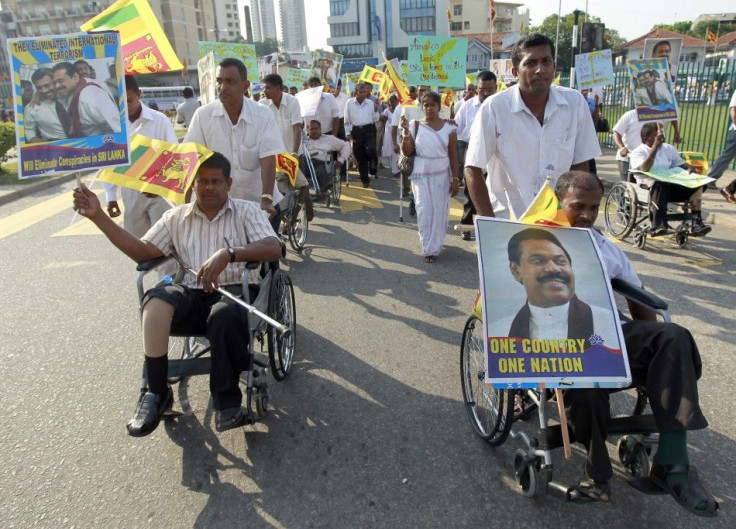UN Human Rights Council Urges Sri Lanka To Probe War Crimes

The United Nations Human Rights Council (UNHRC) passed a U.S.-backed resolution urging Sri Lanka to investigate possible war crimes that may have been committed by both sides of the island nation's 26-year civil war.
Backed by the United States, the European Union and India, the UN is urging Sri Lankan officials to conduct a thorough probe of alleged acts of extra-judicial executions, illegal detentions, the shelling of civilians, kidnappings and other crimes during the conflict between Tamil Tiger rebels and the majority-Sinhalese government forces, news sources reported.
U.S. Ambassador Eileen Chamberlain Donahoe told reporters that she hopes Sri Lanka will now investigate the serious allegations of civilian casualties from the civil war so that there is a real basis of reconciliation, according to the Associated Press.
Of the 47 members in the Human Rights Council, 24 nations voted in favor of the resolution, 15 opposed it, and the remaining eight abstained.
However, the resolution did not call for an investigation by outside international agencies.
Up to 100,000 people are believed to have died in the insurgency in which the Liberation Tigers of Tamil Eelam (LTTE) fought for an independent state for the minority Tamil population in Sri Lanka. The great bulk of the killings apparently occurred in the final months of the lengthy conflict.
The LTTE admitted defeat in May 2009.
The ruling government of Sri Lanka strongly opposed the UN resolution, citing that any investigation into war crimes will delay or even endanger reconciliation between the former warring factions in the country.
China, Russia, Pakistan, Bangladesh and Cuba also supported Sri Lanka’s opposition to the resolution.
Cabinet Minister Mahinda Samarasinghe, the chief of Sri Lanka's delegation to the UN council, characterized the resolution as misconceived, unwarranted and ill-timed.
Those who live in glass houses are best advised to exercise caution before throwing stones,” Samarasinghe said.
The Times of India reported that India’s decision to support the resolution was a last-minute move.
In a statement, the Indian delegation to the UN council said: “We … urge that Sri Lanka takes forward the measures for accountability and to promote human rights that it has committed to. It is these steps, more than anything we declare in this council, which would bring about genuine reconciliation between all the communities of Sri Lanka, including the minority Tamil community.”
According to Sri Lankan media, President Mahinda Rajapaksa blasted the UN resolution and vowed he would not allow any foreign interference in his nation’s internal affairs.
“Protecting human rights and fulfilling the people’s aspirations in a people-friendly manner are not new aspects to us” he said.
The Committee of Vice-Chancellors and Directors (CVCD) described the resolution as a needless intervention in the country.
We … are greatly concerned about the unfolding situation at the UNHRC Sessions in Geneva, Switzerland, the group wrote in a statement. We believe that the United Nations was established to develop peace, harmony and goodwill among member nations.”
In Sri Lanka itself, opinion about the resolution is divided. Many government lawmakers and former Sinhalese army veterans denounced the UN and the US in various protests. However, human rights groups, opposition forces in Sri Lanka and Tamils living in exile in the UK, the United States and Canada embraced the UN’s call for a probe.
The Human Rights Council's vote demonstrates broad international dissatisfaction with Sri Lanka's accountability efforts in the three years since the end of the war, Juliette De Rivero of Human Rights Watch said in Geneva.
© Copyright IBTimes 2024. All rights reserved.





















